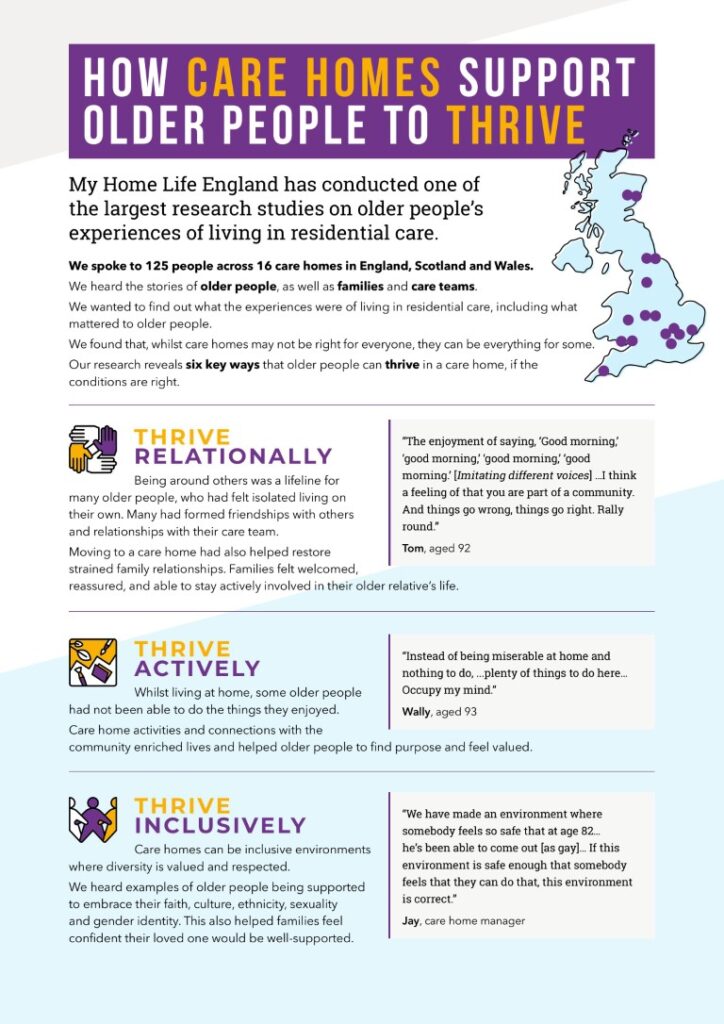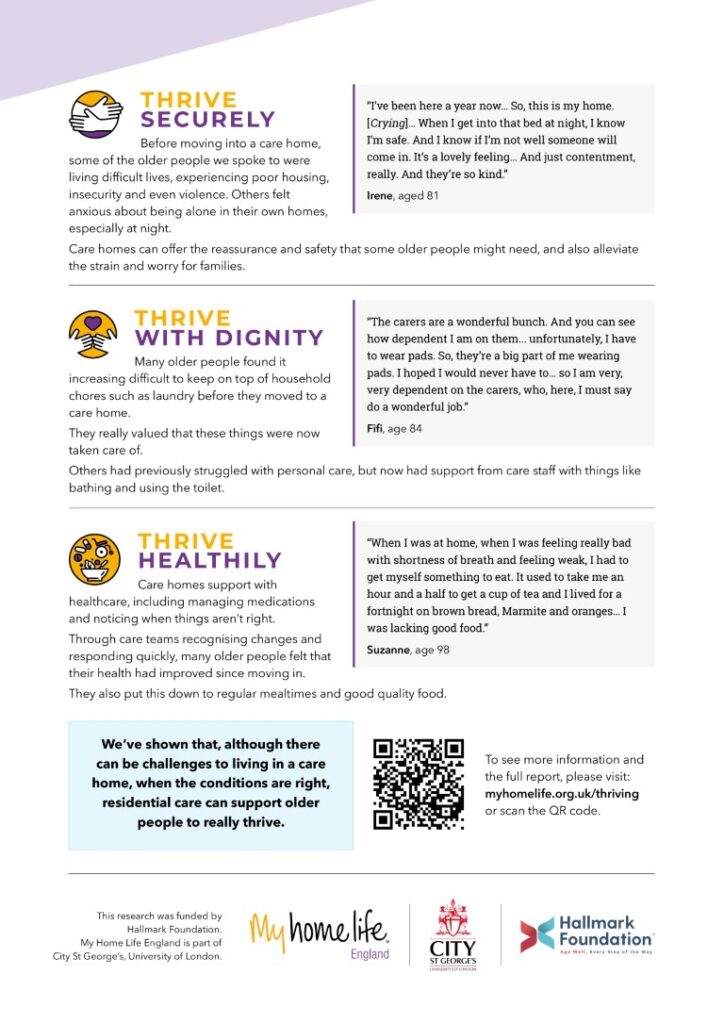One of the largest ever qualitative research studies on older people’s experiences of living in residential care has revealed the positive impact it can have on their quality of life.
Undertaken by the My Home Life England initiative at City St George’s, University of London, the researchers spoke to older people living in care homes, as well as families and care teams across the UK.
It shines a light on six key ways that older people can thrive in a care home, if the conditions are right.
As reported in Care Home Professional Magazine the study clusters its findings into six themes: Thrive Relationally, Thrive Actively, Thrive Inclusively, Thrive Securely, Thrive with Dignity, and Thrive Healthily:
1. Thrive Relationally
“Being around others was a lifeline for many older people, who had felt isolated living on their own. Many had formed friendships with others and relationships with their care team. Moving to a care home had also helped restore strained family relationships. Families felt welcomed, reassured, and able to stay actively involved in their older relative’s life.”
2. Thrive Actively
“Whilst living at home, some older people had not been able to do the things they enjoyed. Care home activities and connections with the community enriched lives and helped older people to find purpose and feel valued.”
3. Thrive Inclusively
“Care homes can be inclusive environments where diversity is valued and respected. The report shares examples of older people being supported to embrace their faith, culture, ethnicity, sexuality and gender identity. This also helped families feel confident that their older relative would be well-supported.”
4. Thrive Securely
“Before moving into a care home, some of the older people spoken to were living difficult lives, experiencing poor housing, insecurity and even violence. Others felt anxious about being alone in their own homes, especially at night. Care homes can offer the reassurance and safety that some older people might need, and also alleviate the strain and worry for families.”
5. Thrive with Dignity
“Many older people found it increasingly difficult to keep on top of household chores such as laundry before they moved to a care home. They really valued that these things were now taken care of. Others had previously struggled with personal care, but now had support from care staff with things like bathing and using the toilet.”
6. Thrive Healthily
“Care homes support with healthcare, including managing medications and noticing when things aren’t right. Through care teams recognising changes and responding quickly, many older people felt that their health had improved since moving in. They also put this down to regular mealtimes and good quality food.”


My Home Life England spoke to 125 people across 16 care homes in England, Scotland and Wales.
The older people who took part had an average age of 85 and had spent an average of two years living in a care home.
Vic Rayner OBE, who authored the report’s foreword, said: “This research reveals the richness of ways that care homes are enabling many older people to flourish in their last chapter of life.
“It has shone a light on how the provision of high quality, proactive, relationship-centred care, inclusion in a social environment with meaningful activities and nutritious meals, and fostering a strong sense of safety and security has, in some cases, been truly transformative and has supported many older people to really thrive.”
Dr Bethany Morgan Brett, research fellow at My Home Life England, added: “Historically, the voices of older people living in care homes have not been heard, so it has been a real privilege for My Home Life England to hear, in-depth and on an extraordinary scale, the experiences of older people, families and care teams living, visiting and working in care homes across the UK.
“We have uncovered many ways in which older people can and do benefit from residential care and, when care homes are operating well, the conditions under which older people can thrive.
“These findings make a valuable contribution to better understanding what matters to older people living in care homes and will have significant implications for the ways in which long term residential care is perceived.”
